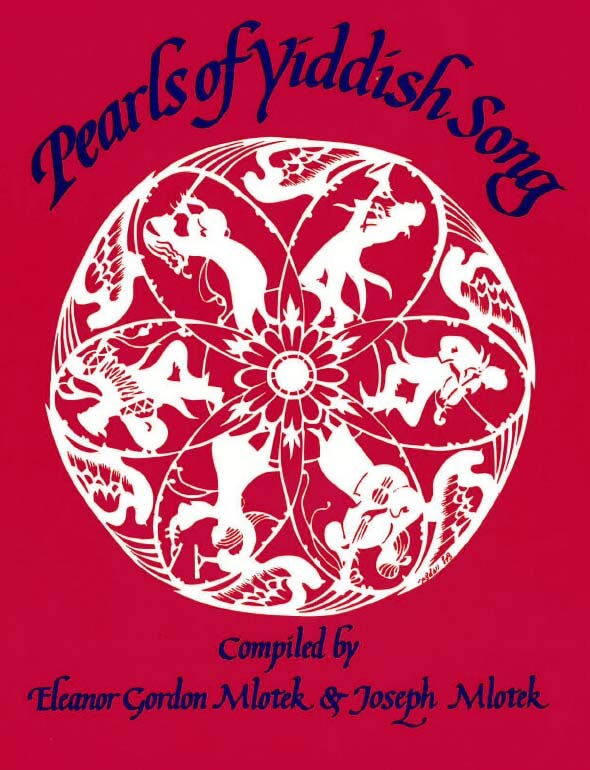Hebrew words by the poet Judah ha-Levi (est. 1075-1141). Translated into Yiddish by Chaim Nachmen Bialik (1873-1934). The music by M. Shneyer (1885-1942) was published by Jos. P. Katz, N.Y. in 1917.

I have forgotten all my loved ones,
I have left my own home.
I’ve abandoned myself to the sea:
Carry me, Sea, to my mother’s bosom!
Refrain:
And you, loyal West Wind,
Drive my ship to that shore,
Where my heart on eagle’s wings has long been seeking a path.
Bring me there unharmed
And then fly back again.
Give greetings to all my loved ones
And tell them of my happiness.
Kh’hob fargesn ale libste,
Kh’hob farlozt mayn eygn hoyz;
Kh’hob dem yam zikh opgegebn;
Trog mikh, yam, tsum muters shoys.
Refrain:
Un du, mayrev-vint getrayer,
Trayb mayn shif tsu yenem breg,
Vos mayn harts mit odler-fligl
Zukht shoyn lang tsu im a veg.
Breng mikh nor ahin besholem, —
Nokh dem fli zikh dir tsurik,
Grisn zolstu ale libste
Un dertseyl zey fun mayn glik.
כ’האָב פֿאַרגעסן אַלע ליבסטע,
כ’האָב פֿאַרלאָזט מײַן אײגן הױז;
כ’האָב דעם ים זיך אָפּגעגעבן:
טראָג מיך, ים, צום מוטערס שױס.
רעפֿרײן:
און דו, מערבֿ־װינט געטרײַער,
טרײַב מײַן שיף צו יענעם ברעג,
װאָס מײַן האַרץ מיט אָדלער־פֿליגל
זוכט שױן לאַנג צו אים אַ װעג.
ברענג מיך נאָר אַהין בשלום,
נאָך דעם פֿלי זיך דיר צוריק,
גריסן זאָלסטו אַלע ליבסטע
און דערצײל זײ פֿון מײַן גליק.
Song Title: Yam-lid

First published in 1988 as Pearls of Yiddish Song: Favorite Folk, Art and Theatre Songs, this anthology contains 115 songs. Some material had never been published, while others, included in rare song collections or sheet music, were largely inaccessible. The songs presented reflect Jewish life in Eastern Europe and the United States and depict childhood, love, family celebrations, poverty, work and struggle. There are also songs from the Hasidic and Maskilic movements, songs of Zion and of America, as well as songs from the Yiddish theater.
The title of this anthology derives from the weekly two-page feature column “Pearls of Yiddish Poetry,” which the compilers Yosl and Chana Mlotek initiated in 1970 in the Yiddish newspaper Der Forvertz (the Yiddish Daily Forward). Hundreds of readers from around the world — including authors, composers, singers, actors — became co-participants in this collective folk project and recalled melodies, lines, fragments, stanzas and their variants of songs, poems, and plays which they had heard in their youth. At first, readers sent in only written material. Later, they also taped songs on cassettes, many of whose melodies had, until then, never been recorded. They also identified and supplied missing information regarding lyricists, poets, and composers and described the circumstances surrounding the songs’ origins, their dissemination, diffusion and impact.